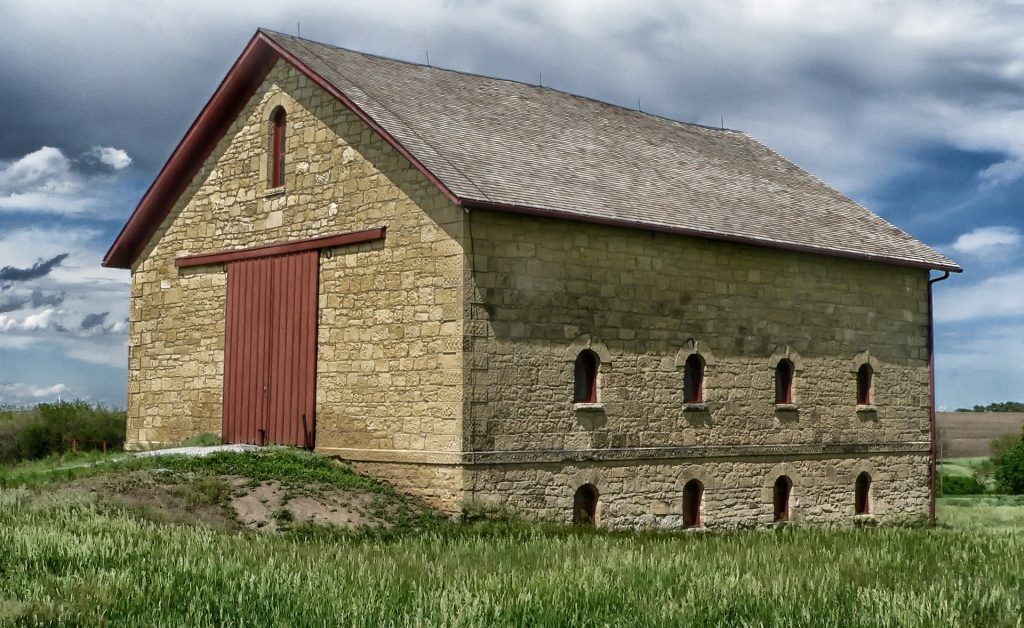
Many things in life are easy to do, and just as easy not to do.
• Put your change in a jar.
• Keep a thankful journal that you write in each evening.
• Make a list of Godly attributes that you want to include in your life philosophy and review it every day.
• Tape a verse about something you want to acquire in your life to your bathroom mirror, and repeat it emphatically to yourself each day.
Easy to do, just as easy not to do.
But the long-term effects are staggering. Money is easy to see and count, but the long-term effects are the same, whether it is money or thoughts.
When a thought is brought to mind daily or several times a day, some call that compounding. You could also use a mental image, which some say is more effective. Compounding is where one thing is added in on top of another, on top of another, on top of another, or two things are added together to expand your understanding. In the latter case, you would have thoughts on the same subject, a verse maybe, repeated over and over for months or years. That is a form of compounding. In other words, one thought is added on top of the last, and then again and again. This could give you a great increase in understanding and in believing that verse was true for you.
Compounding with savings is the same. If you saved $35.00/wk you would be compounding your savings each week. $35.00 + $35.00 +$35.00. Compounding! $35.00/week is $1,820.00/year. In the beginning, whether it is words or money, it does not seem like much. You don’t see much in the way of results immediately. Over time, the results of what you are doing become apparent.
Easy to do, just as easy not to do
One author, Jeff Olsen, called this The Slight Edge. It is the difference between the wise described in Proverbs and the unwise. It is slight, but down the road the results can be incredible.
For instance: If you went over your savings and funding accounts once a week to find holes or to fine-tune your financial engine, that would be wise. It is like correcting your steering while driving a car. Small adjustments.
Easy to do, just as easy not to do
Life is not set up for gigantic changes from one day into the next. Life is not set up on one roll of the dice. Someone once said that the wealthy were winners at the roulette table of life. In other words, the wealthy had just been lucky. Sometimes, that may be the case, but that is not the way God designed life. Chance and gambling are very difficult to duplicate. Once the money gained this way is gone, it is just gone. This wisdom of knowing how God set life up to be lived is far more profitable than winning the lottery, winning at the roulette table, or getting a professional sports contract. You cannot easily duplicate those things, but the wisdom gained by believing and doing what God says in His word is priceless and can be done over and over.
Proverbs 3:13-15 Happy is the man that findeth wisdom, and the man that getteth understanding. For the merchandise of it is better than the merchandise of silver, and the gain thereof than fine gold. She is more precious than rubies: and all the things thou canst desire are not to be compared unto her.
In this way, if you lost all your money, you know the principles of prosperity, and you can do it over again. This is why wisdom is more precious than rubies. It is slower than winning at the roulette table but far more predictable. Remember the story of the tortoise and the hare: slow and methodical is always better. I think we have already read that those hasty to be wealthy are not wise.
Proverbs 21:5 The thoughts of the diligent tend only to plenteousness; but of every one that is hasty only to want.
Galatians 6:7-9 Be not deceived; God is not mocked: for whatsoever a man soweth, that shall he also reap. For he that soweth to his flesh shall of the flesh reap corruption; but he that soweth to the Spirit shall of the Spirit reap life everlasting. And let us not be weary in well doing: for in due season we shall reap, if we faint not.
In sowing, you plant what you would normally eat in order to reap a much greater harvest. This requires patience. Jesus sowed the Word in people’s lives, and at the end of his life, it appeared that he was not too successful. At his death, all men left him, and Peter denied he knew Jesus. Yet a couple of months later, Peter stood up on the day of Pentecost and preached, and about 3000 people got born again. It takes a while for the seed to grow. The same is true with your finances. You will always reap more than you sow. This sowing is in the area of giving, and you also sow to your savings. If you give or save sparingly, you will also reap sparingly. This principle of sowing and reaping is true in many areas of life.
That is the danger in bitterness, but it is also the blessing of forgiveness.
Doing wise things over a long, long period of time produces amazing results, whether in relationships, finance, business, or in your walk with God. The problem with most of us is that we “get tired” of the journey. Halfway through this journey, it looks like nothing is happening, and we become discouraged, disillusioned, and give up. However, what compounding teaches us is that a tomorrow that is built on what we learned yesterday or saved yesterday can grow and become something amazing. This is why the “little things matter” so much IF we don’t quit. As you come to grasp this truth, you begin to realize that the best is NOT behind, but ahead in this life AND in the next.
In order to get big results, we must do the little things. Things that are
Easy to do, just as easy not to do.
When it comes to compounding, think about this:
“Beware of little expenses; a small leak will sink a great ship.” Ben Franklin
Another example of compounding is a flywheel. If you have ever messed with a flywheel, you know that it takes some effort to get it spinning. If you keep pushing on it, it would be the same amount of energy added in with each push — compounding. Once it is spinning, it only takes a small amount of additional effort to keep it going, and it will run on its own for a long time.
The following is an example of starting with an insignificant amount of money, a penny, and doubling the amount you have every day for 30 days. If you will notice by day 15, halfway thru the month, we only have $163.84. Not much progress. Notice what happens in the last 15 days, though. It ends at $5.3 million. This is what compounding is about. It seems so small in the beginning, but it continues to build over time. Remember, this is just an illustration, not a prediction of your finances!
Day 1: $.01
Day 2: $.02
Day 3: $.04
Day 4: $.08
Day 5: $.16
Day 6: $.32
Day 7: $.64
Day 8: $1.28
Day 9: $2.56
Day 10: $5.12
Day 11: $10.24
Day 12: $20.48
Day 13: $40.96
Day 14: $81.92
Day 15: $163.84
Day 16: $327.68
Day 17: $655.36
Day 18: $1,310.72
Day 19: $2,621.44
Day 20: $5,242.88
Day 21: $10,485.76
Day 22: $20,971.52
Day 23: $41,943.04
Day 24: $83,886.08
Day 25: $167,772.16
Day 26: $335,544.32
Day 27: $671,088.64
Day 28: $1,342,177.28
Day 29: $2,684,354.56
Day 30: $5,368,709.12
With many things in life, the choices seem like they don’t matter that much. In the beginning, there seems to be no difference. They are just choices. The choice
• To save $35.00 or go out to eat
• To go to your first fellowship or stay home, like your buddy. (In the end, one choice could lead to eternal life and one not!)
• To marry one person or another
• To have one job or another or be self-employed
• To forgive or to be bitter
• To go to another meeting where someone is teaching the Word of God.
• To read a certain book or not.
The meeting you miss or the book you pass on reading may hold the key to your better life. Better to miss a meal than miss a book or a teaching, because you just don’t know what you will learn. In that book or meeting, you may hear or read that one thing that puts you over the top.
These are just choices, but down the road, the results may be huge, compared to what seemed to be a small choice.
Romans 12:1-2 I beseech you therefore, brethren, by the mercies of God, that ye present your bodies a living sacrifice, holy, acceptable unto God, which is your reasonable service. And be not conformed to this world: but be ye transformed by the renewing of your mind, that ye may prove what is that good, and acceptable, and perfect, will of God.
As with finances, this renewing of your mind is a slow process, but as time travels on, it will become apparent what has been going on inside your head and heart. It is a daily process. Remember the expression “an apple a day”? You don’t get the same effect if you eat seven apples on Saturday night! The greatest effect comes from compounding daily.
Easy to do, just as easy not to do.
Deuteronomy 11:18 Therefore shall ye lay up these my words in your heart and in your soul, and bind them for a sign upon your hand, that they may be as frontlets between your eyes.
Proverbs 6:21-23 Bind them continually upon thine heart, and tie them about thy neck. When thou goest, it shall lead thee; when thou sleepest, it shall keep thee; and when thou awakest, it shall talk with thee. For the commandment is a lamp; and the law is light; and reproofs of instruction are the way of life:
We can choose to burn into our brains the things from God’s Word that will light our paths. Thus, they become part of our philosophy, a way to conduct our lives.
So take the instructions in God’s Word on finances, and put them in your heart. They are great wisdom, and there are some great promises, too. Ask God to teach you what you need to know for your life in relation to these things. And remember, it’s…
Easy to do, just as easy not to do.




